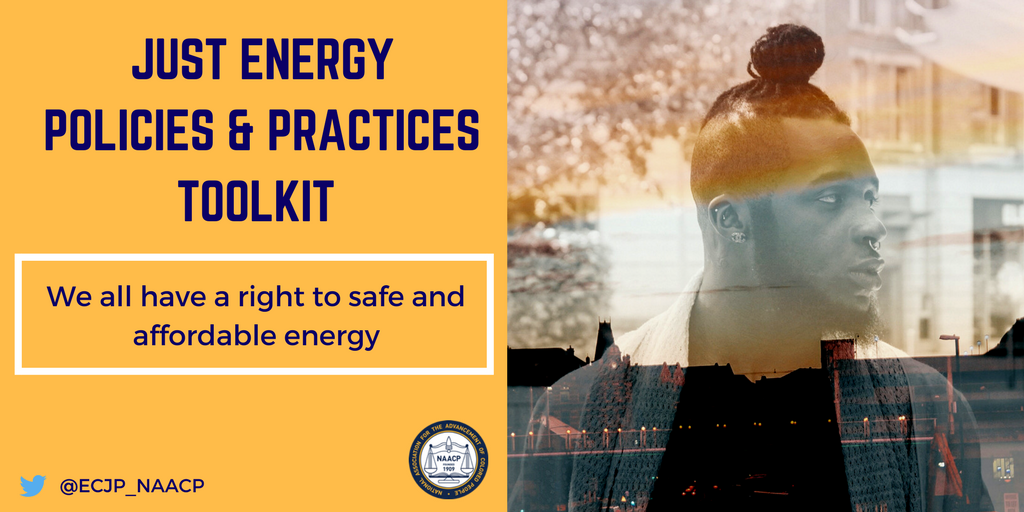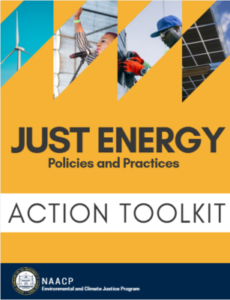Toolkit provides step-by-step guide for activists

There are so many ways to make our energy system more fair. One of the biggest challenges can be figuring out how to start. A new toolkit from the NAACP is designed to help people who are concerned about their communities put their passion for making a difference into practice. The organization’s Just Policies: Energy Policies and Practices Action Toolkit is a guide for people who want to make the energy system in their communities more democratic.

“We wanted to make sure [local chapters] had the resources they need in doing work around these issues,” said Marcus Franklin, a toolkit co-author. “Through that work, we found there wasn’t a go-to resource.”
While it is written for NAACP members as the primary audience, the toolkit provides valuable advice for anyone interested to engage on issues of energy justice. The document represents the cumulative work of years of intensive community organizing.
The kit is organized into eight modules. Each module takes readers step-by-step through the process of creating meaningful change in their communities. The first module, “Getting Organized So You Can Organize!”, teaches readers how to build a group of like-minded individuals.
It suggests ways to recruit volunteers through ideas such as movie screenings and speaker events. A critical step to building this group is having members who are representative of the community as a whole. Having a diverse group helps ensure that the work the grouop chooses to do will provide the most benefit to the entire community.
“There’s a lot of resources [in the toolkit] to orient the person and ground them in their local communities,” Franklin said. ”That’s a really easy way to get involved to ground yourself in the work and target your passion.”
The subsequent modules offer paths community members can take to affect change once they’ve built their group. Energy democracy is a broad term that covers a range of issues. Because of this, there are many ways empower community members to take control of where their electricity comes from. One module provides community-members the tools to launch campaigns to push legislation to increase solar access.
Another module is a guide for creating community choice aggregation. Community choice aggregation allows communities to pool their electricity demand to purchase their electricity independently from their utility supplier in states that allow it. This allows communities to choose electricity from cheaper and/or cleaner sources, sometimes both.
The authors of the toolkit note that communities of color face unique challenges in fighting for a fairer energy system. They often lack the financial capital to invest into projects that enable community members to take ownership of their electricity generation. Conversely, these communities are also the ones most likely targeted to house energy generation sources that negatively impact community health.
“These communities are fighting so many issues,” said Katherine Taylor, a toolkit co-author. “They needed a toolkit they could start using today.”
Beyond the nitty-gritty details of how to run campaigns, the toolkit’s authors want people to understand all of the benefits of creating a more just energy system. “A lot of times, people within the environmental justice community see renewable energy as good for the environment,” Franklin said. The toolkit highlights other renewable energy benefits such as economic development, resilience, and community health.
The toolkit is part of a suite of materials the NAACP has developed as part of its Environmental and Climate Justice program. You can view them here.
“We want people to download it, read it and start taking action,” Taylor said. “We want people to say: ‘I can do this’.”
